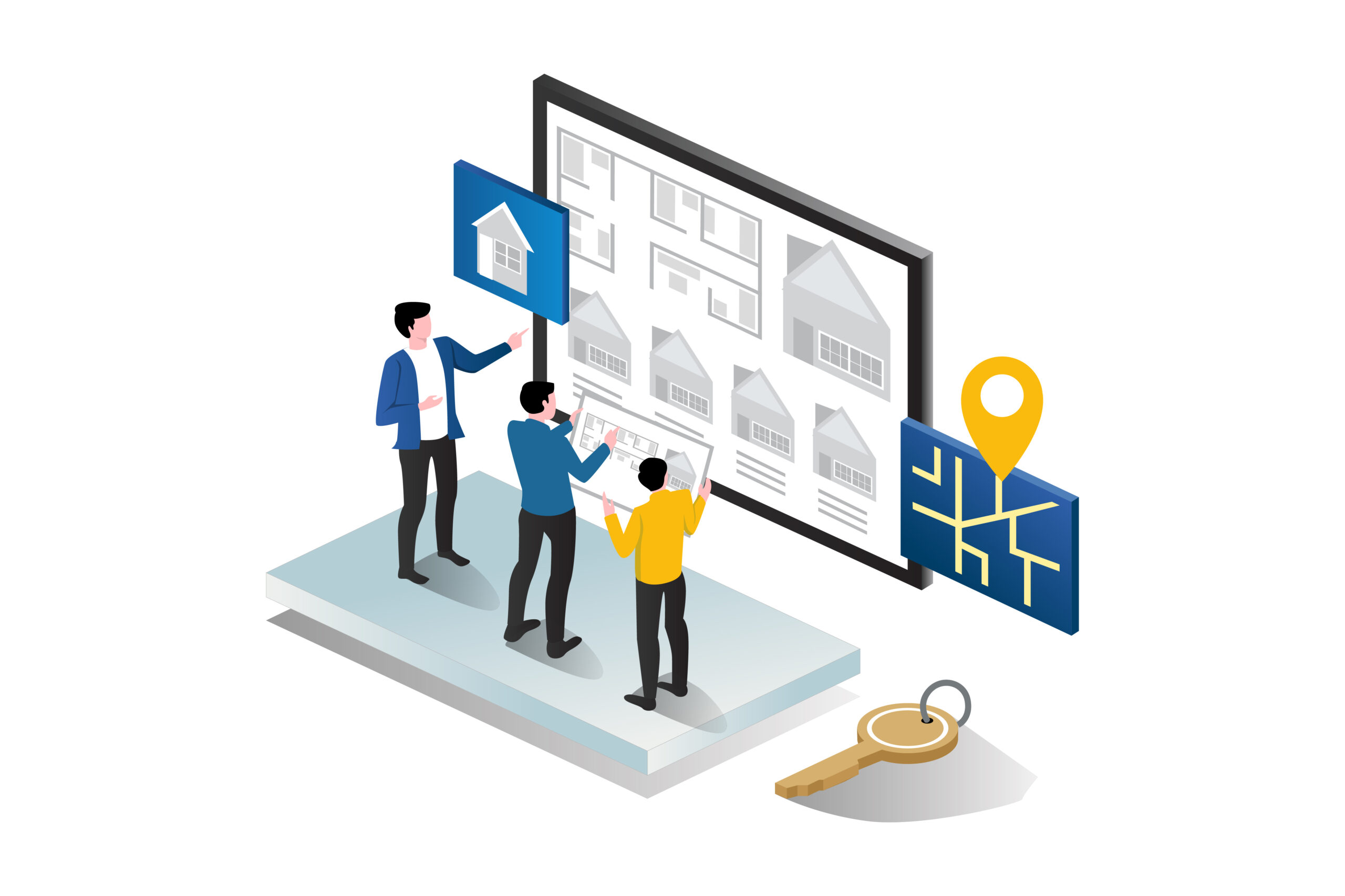Industry leaders are proving that Real Estate CRM Tools aren’t just about managing data—they’re about building lasting trust with every client. Walk into any real estate office run by a top performer, and you’ll notice one thing right away: clients don’t just see them as salespeople. They see them as trusted advisors. That trust isn’t built overnight, and it’s not built on handshakes alone.
These tools are more than software. They’re like a personal assistant who never forgets a client’s name, a follow-up, or a preference. And in an industry where one missed call could mean a lost million-dollar deal, having that reliability is priceless.
In this guide, we’ll walk through how the best in the business use Real Estate CRM Tools to build trust, close deals faster, and create relationships that last years, not just until the paperwork is signed.
Why Trust Is Everything in Real Estate
Buying or selling property is a huge decision. For some, it’s their life savings; for others, it’s a business empire in the making. Either way, trust decides whether they stick with you or walk away.
That’s why leaders don’t leave trust to chance. They use building trust with Real Estate CRM Tools as a structured strategy. Instead of relying on scattered notes or memory, they use a CRM for real estate agents to keep every client detail safe and accessible. From birthdays to budget limits, nothing slips through the cracks. And when clients see that you remember the little things, they feel respected, and trust begins to grow.
Proven Real Estate CRM Best Practices Used by Industry Leaders
The best agents don’t just install software and forget about it. They follow proven real estate CRM best practices that turn their Real Estate CRM Tools into a trust-building powerhouse:
- Consistency wins trust: Leaders schedule regular follow-ups. Their CRM sends reminders, so no client ever feels ignored.
- Personalization matters: Instead of robotic messages, they craft personalized emails using insights from their CRM. Clients notice the difference.
- Transparency is key: Some even share CRM-generated updates with clients, showing them where things stand in real time. That openness makes clients confident they’re in good hands.
These are not just tech tricks; they are genuine trust-building strategies in real estate that make people feel they’re dealing with professionals who care.
How Realtors Use CRM in Everyday Work
A client visits an open house but isn’t quite ready to buy. Without a system, the lead might fade away. But leaders know how realtors use CRM to nurture that relationship. The CRM reminds them to check in, suggests sending new listings in the same area, and even schedules a follow-up call.
Over time, that hesitant visitor becomes a confident buyer because they feel looked after. That’s the quiet power of Real Estate CRM Tools.
Choose the Real Estate CRM Software
Ask ten agents what the best CRM is, and you’ll get ten different answers. But one thing’s clear,top real estate CRM software is always chosen with trust in mind. Leaders look for tools that:
- Handle leads smoothly from first call to closing.
- Automate routine tasks so nothing is missed.
- Provide analytics so brokers can see what’s working and what isn’t.
For developers managing large projects, the best CRM for property developers must also handle bulk marketing campaigns and keep investors in the loop. For brokers, the right CRM for real estate brokers means they can supervise agents and ensure every client is treated with care.
Why Client Relationship Management Builds Trust in Real Estate
When people talk about client relationship management in real estate, they often think of databases and reminders. But leaders see it differently. For them, Real Estate CRM Tools is about making clients feel secure.
If a family is searching for a new home, the CRM helps the agent track exactly what they’ve seen, what they liked, and what they disliked. No awkward repeats, no wasted time. This makes the client feel heard, which is the foundation of trust. That’s why real estate client engagement tools are considered the heart of successful relationships.

Why CRM Is Essential for Real Estate Lead Nurturing
Leaders know most deals don’t close on the first conversation. That’s why real estate lead nurturing with CRM is a must. They use their tools to stay in touch gently but consistently.
Instead of hard selling, they send helpful updates:
- Market trend reports.
- New listings in the client’s preferred area.
- Financing tips or property tax reminders.
Each touchpoint is valuable, not pushy. Over time, clients start to view the agent not just as a salesperson but as a knowledgeable guide. That shift,from seller to advisor,is how trust deepens.
How CRM Automation Helps Realtors Build Trust Effortlessly
Here’s a reality check: no agent, no matter how skilled, can remember everything. Leaders use CRM automation for realtors to fill in the gaps.
Automation handles repetitive but important tasks:
- Sending thank-you notes after viewings.
- Scheduling reminders for follow-ups.
- Sharing property recommendations based on saved preferences.
Clients don’t care if the message was automated. What they care about is that you remembered them. And that’s how Real Estate CRM Tools quietly build trust in the background.
How Real Estate Customer Retention Tools Build Long-Term Loyalty
The best leaders don’t just focus on closing deals; they focus on staying connected after the deal. Using real estate customer retention tools, they keep in touch with past clients:
- Sending a note on the anniversary of their home purchase.
- Offering tips on property value growth.
- Providing contacts for maintenance or renovations.
These little gestures make clients feel valued, and they’ll remember who treated them well when it’s time to buy again,or refer a friend.
How Brokers and Developers Leverage CRM
For brokers, trust means not just managing clients but also managing teams. A good CRM for real estate brokers gives them visibility into which agents are keeping up with follow-ups and which aren’t. It builds accountability inside the firm.
For developers, the best CRM for property developers helps coordinate large-scale projects. When investors and buyers receive clear updates through the CRM, they trust the developer’s professionalism. Delays or confusion can ruin reputations,but structured communication prevents that.
Real Estate Client Engagement Tools in Action
Think about how much clients appreciate when you remember their communication style. Some like WhatsApp, others prefer email. With real estate client engagement tools, leaders track and respect these preferences.
It’s not just about selling property,it’s about making every interaction feel personal. Clients think, “Wow, they really get me.” That small detail can make or break long-term trust.
Why Industry Leaders Never Ignore Real Estate CRM Tools
By now, it’s obvious: Real Estate CRM Tools are not optional; they are essential. Leaders use them because they:
- Turn messy notes into reliable systems.
- Help deliver personalized, timely communication.
- Save time through automation so agents can focus on people.
- Keep past clients engaged for future opportunities.
In short, they help industry leaders turn transactions into lasting relationships.
Proven Trust-Building Strategies in Real Estate
Let’s bring it all together. The most effective trust-building strategies in real estate that leaders practice with Real Estate CRM Tools include:
- Always follow through: Never miss a commitment, thanks to reminders.
- Be transparent: Share updates openly.
- Educate, don’t just sell: Provide valuable insights through CRM-driven content.
- Add a human touch: Use CRM data to make every interaction personal.
When combined, these strategies create an environment where clients feel safe, informed, and valued.
How Realtors Use CRM to Win Trust in Competitive Markets
Take the example of a realtor in a busy city market like Karachi, Dubai, or New York. With dozens of agents competing for the same clients, the difference often comes down to how well you manage relationships.
One realtor we worked with adopted Real Estate CRM Tools to stay ahead. Before CRM, they juggled client calls and scribbled notes in diaries. Inevitably, some follow-ups slipped through, and clients felt neglected. After adopting CRM, things changed:
- Every client inquiry was logged instantly.
- Automated reminders ensured no follow-up was missed.
Real estate client engagement tools helped personalize every message, so clients never felt like they were receiving generic updates.
Within six months, their closing rate improved by 40%. Clients told them, “We trust you because you never forget us.” This is exactly how realtors use CRM to transform from ordinary agents into trusted advisors.
Building Trust With CRM Tools in Long-Term Relationships
Trust isn’t only about the first sale. Leaders know that keeping clients happy after the deal is where reputations are truly built. That’s why they use building trust with CRM tools as a long-term strategy.
For example, when a family buys their first home, the relationship doesn’t end at closing. With the help of real estate customer retention tools, leaders keep in touch:
- Sending updates about rising property values.
- Offering recommendations for maintenance services.
- Sharing financing tips for future investments.
Over time, these thoughtful gestures create loyalty. When the same family wants to upgrade to a larger home, they return to the same realtor. This isn’t luck,it’s trust carefully built through client relationship management in real estate.
Real Estate Lead Nurturing with CRM: From “Maybe Later” to “Yes”
Consider how many leads in real estate start with hesitation:
- “I’ll think about it.”
- “Maybe in six months.”
- “We’re still exploring.”
Without a system, those leads would be lost forever. But leaders use real estate lead nurturing with CRM to stay connected without being pushy.
Instead of flooding clients with sales messages, they provide value. A couple browsing homes may get an email about schools in the area. An investor might receive market trend reports. A developer could send updates on construction milestones.
This thoughtful approach, powered by Real Estate CRM Tools, slowly builds confidence. And when the time is right, that “maybe later” lead is far more likely to convert into a “yes.”
How CRM Automation Helps Realtors Build Trust at Scale
A broker managing 15 agents. Without automation, ensuring each client gets timely responses is nearly impossible. But with CRM automation for realtors, they achieve consistency at scale.
Here’s how it works:
- A lead signs up on the website → the CRM instantly sends a personalized welcome message.
- An agent schedules a property viewing → the Real Estate CRM Tools confirms details and sends a reminder.
- A client misses a call → the CRM triggers a polite follow-up message.
Each step shows clients they matter. Even though much of this is automated, clients feel they’re receiving genuine attention. That reliability builds the kind of trust that wins referrals and repeat business.
Best CRM for Property Developers: Building Credibility in Big Projects
For property developers, trust can make or break multi-million-dollar projects. Imagine a developer managing a 500-unit project. Buyers and investors are naturally cautious, delays or poor communication can cause panic.
The best CRM for property developers solves this problem by:
- Sending automated updates about construction phases.
- Sharing virtual tours and project progress.
- Keeping investors informed with transparent reports.
This constant communication reassures stakeholders that the project is in good hands. And when developers deliver this level of clarity, they gain a reputation for reliability, which pays off in future projects too.
Real Estate CRM Best Practices Every Leader Swears By
Leaders know the difference between simply “using” Real Estate CRM Tools and mastering it. Some extra real estate CRM best practices include:
- Integrating with social media – capturing leads from Facebook ads or Instagram DMs straight into the Real Estate CRM Tools.
- Using CRM for real estate brokers to track agent performance, ensuring every client receives consistent care.
- Customizing dashboards so agents see the most relevant information instantly.
By combining these practices with trust-building strategies in real estate, leaders create systems that make clients feel supported at every step.
Balancing Technology with the Human Side of Real Estate
It’s important to remember that Real Estate CRM Tools are just that,tools. What really builds trust is how they’re used. Industry leaders never let automation replace the human element. Instead, they use technology to free up time so they can focus on meaningful conversations with clients.
For example, while the CRM sends reminders and automates follow-ups, agents still take the time to personally call clients before a major decision. That blend of efficiency and empathy is what keeps clients loyal.
Trust is the foundation of every successful real estate business. Leaders don’t leave it to chance,they engineer it. They use Real Estate CRM Tools not just to organize their workload, but to show clients they care, they’re reliable, and they’re professionals worth working with.
From real estate lead nurturing with CRM to CRM automation for realtors, every feature strengthens the client’s confidence. And when confidence grows, so do deals, referrals, and long-term partnerships.
If you’re in real estate and you’re still managing leads with spreadsheets or sticky notes, it’s time to make a change. The industry leaders are already building trust at scale,and they’re doing it with CRM.
How Prismatic Technologies Helps You Build Trust
At Prismatic Technologies, we help real estate professionals unlock the real power of Real Estate CRM Tools. We don’t just install software,we customize it to match your unique workflow.
Here’s how we support your growth:
- We implement top real estate CRM software to streamline your operations.
- We train your team on real estate CRM best practices so they can build trust with confidence.
- We set up CRM automation for realtors so no lead is forgotten.
- We design effective real estate client engagement tools that make every client interaction personal.
Our mission is simple: to turn your CRM into a trust-building machine that keeps clients coming back.
FAQs
Q1: What are Real Estate CRM Tools?
They are software systems that help agents, brokers, and developers manage client data, automate tasks, and build trust.
Q2: How do realtors use CRM?
They use it to track leads, send personalized communication, and follow up consistently.
Q3: What’s the best CRM for property developers?
It’s the one that manages large-scale projects, marketing campaigns, and investor communication effectively.
Q4: Can CRM automation help realtors?
Absolutely. It saves time, ensures consistency, and strengthens trust.
Q5: Why is client retention important?
Because happy clients return for future deals and send valuable referrals.

